Central Asia and China are Creating the Silk Road of the Digital Communications Era: Forum in Astana
22.06.2025 | 18:35 |Astana, June 22 | ORIENT. The capital of Kazakhstan today became the venue for a key event in the development of the regional media space - a meeting of the heads of news agencies and the China-Central Asia Cooperation Forum, as well as the Third International Communication Conference "Silk Road" took place here. The event brought together representatives of six dialogue countries, including the Turkmen delegation, to discuss new horizons for strategic partnership and interaction formats.
Opening the Forum, Fu Hua, Director General of the Xinhua News Agency, especially emphasized the unique geopolitical position of Central Asia as a crossroads between East and West, North and South. He called for the formation of a new spirit of interaction based on mutual respect, trust and benefit, with the aim of building communities of shared destiny on the principles of high quality and modernization. According to him, the media and think tanks should become key platforms for promoting equality and mutual benefit in a new type of international relations.
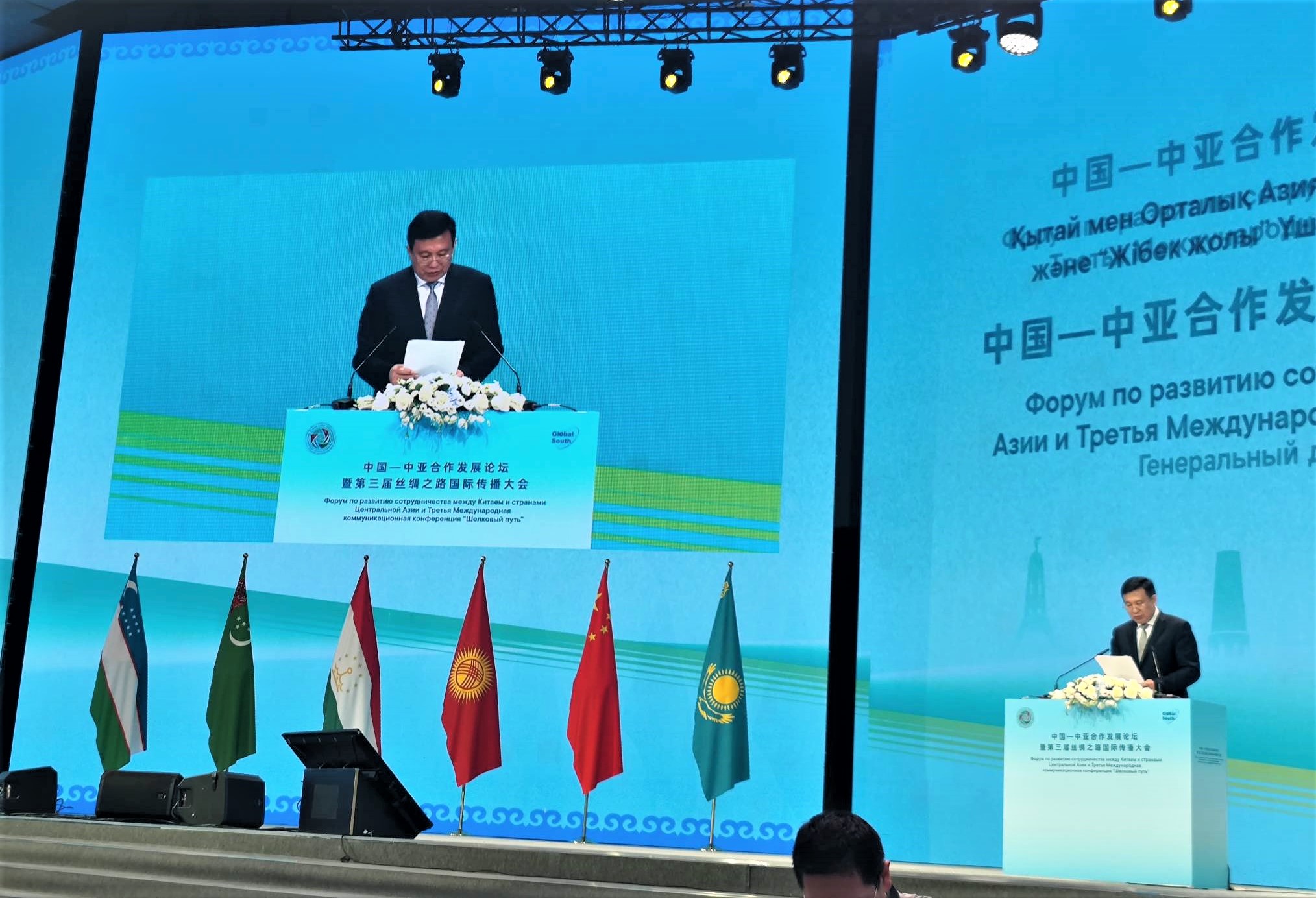
Within the framework of the forum, the executive secretary of the Foreign Policy and Diplomacy magazine of the Ministry of Foreign Affairs of Turkmenistan Akmuhammed Djumakuliev made a report. He noted that good-neighborly relations and strong friendship between the peoples of Central Asia and China have a centuries-old history, dating back to the times of ancient empires such as the Huns, Parthians and Kushans. These historical ties laid the foundation for modern political dialogue, trade and economic cooperation and cultural exchange.
Particular emphasis was placed on the complementarity of Turkmenistan's strategic initiatives - "Revival of the Great Silk Road" and China's "One Belt - One Road". It is this synergy, according to the representative of the Ministry of Foreign Affairs, that contributes to the implementation of large-scale regional and interregional projects. The Turkmenistan-Uzbekistan-Kazakhstan-China gas pipeline and the North-South transport corridor were cited as striking examples, which not only strengthen economic ties, but also demonstrate the growing role of the region for China, and China as a strategic partner for Central Asia.
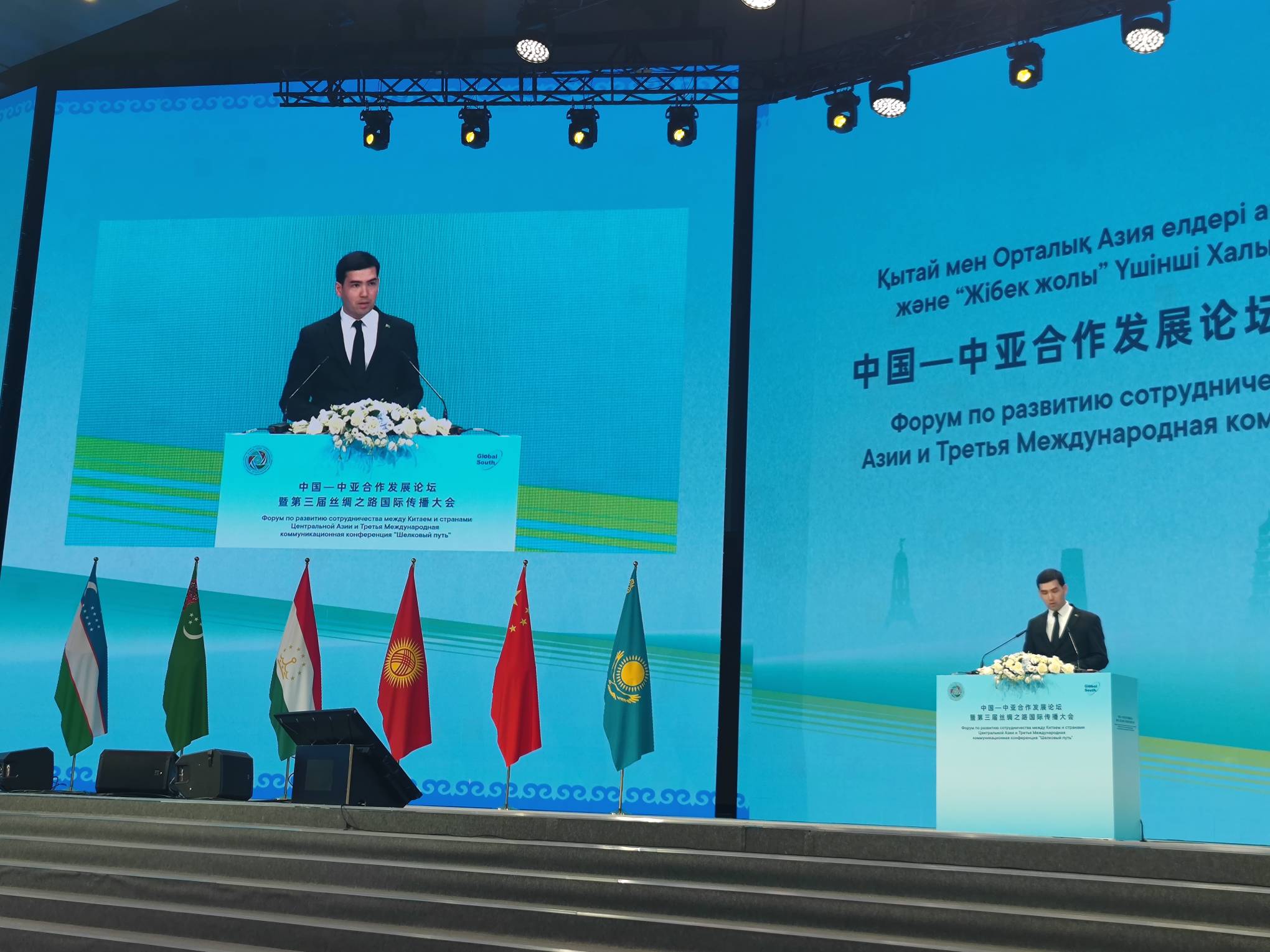
In a situation where digitalization and media progress are coming to the fore, the Turkmen side expressed great interest in China's experience in the field of information and communication technologies. Dzhumakuliev emphasized the authority of Chinese news agencies, primarily Xinhua, as sources of reliable and objective information. He proposed to "synchronize watches" in matters of improving the qualifications of journalists - this concerns the organization of training programs in the field of digital journalism, countering disinformation and political analysis. The idea of joint media projects was also voiced, including the creation of documentaries and analytical materials dedicated to common history and cultural heritage, as well as coordination of activities within international organizations to promote agreed information strategies.
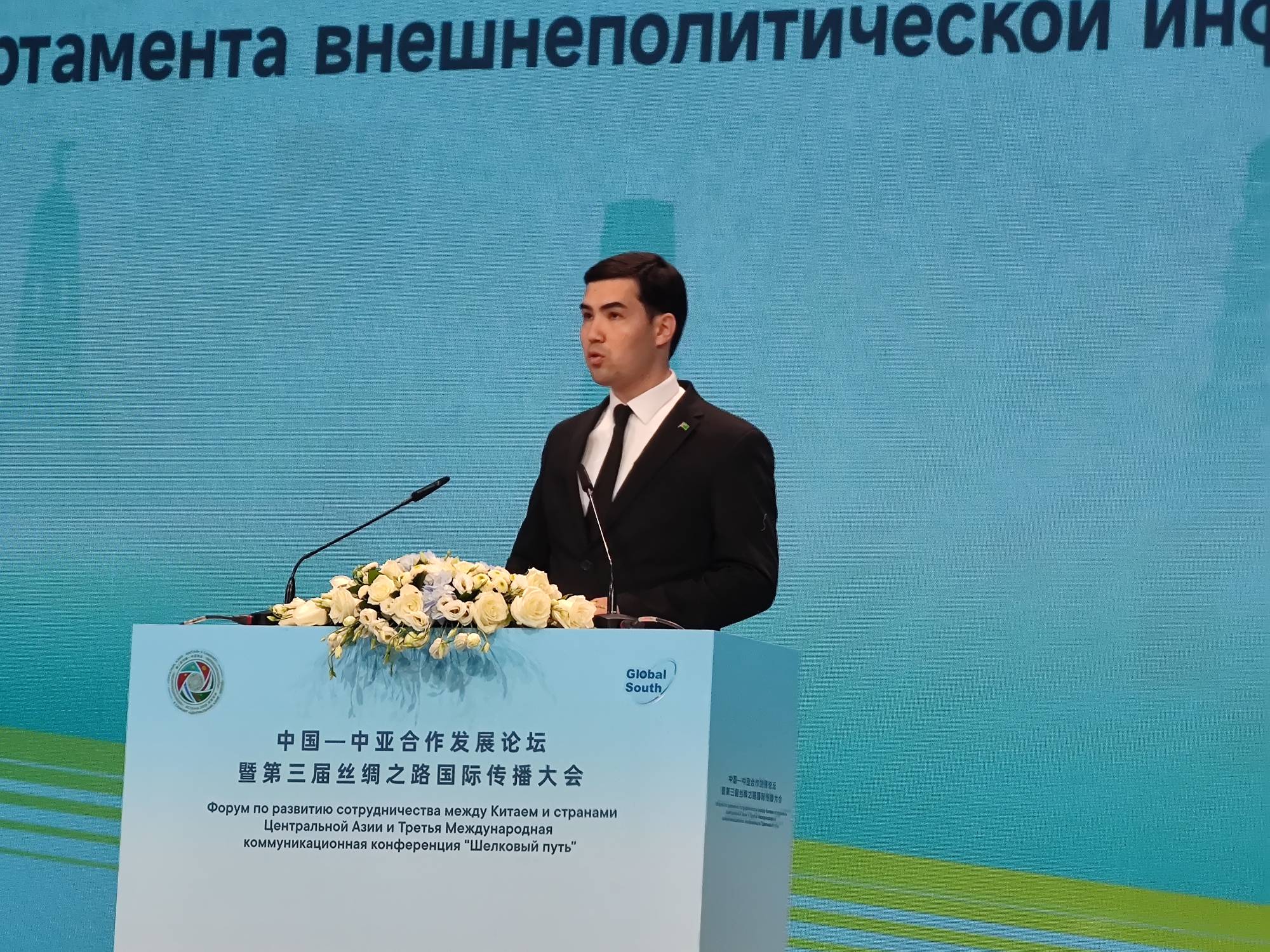
Continuing the busy agenda of the forum, thematic sessions were held. Bekdurdy Amansaryev, Director General of the MEDIA TURKMEN Information Agency, also took part in the discussion at one of them. Discussing the importance of media in shaping a new picture of the world, he expressed the key idea: the media can play a decisive role in strengthening trust, revealing cultural identity and forming an honest, fair image of a region on the global stage.
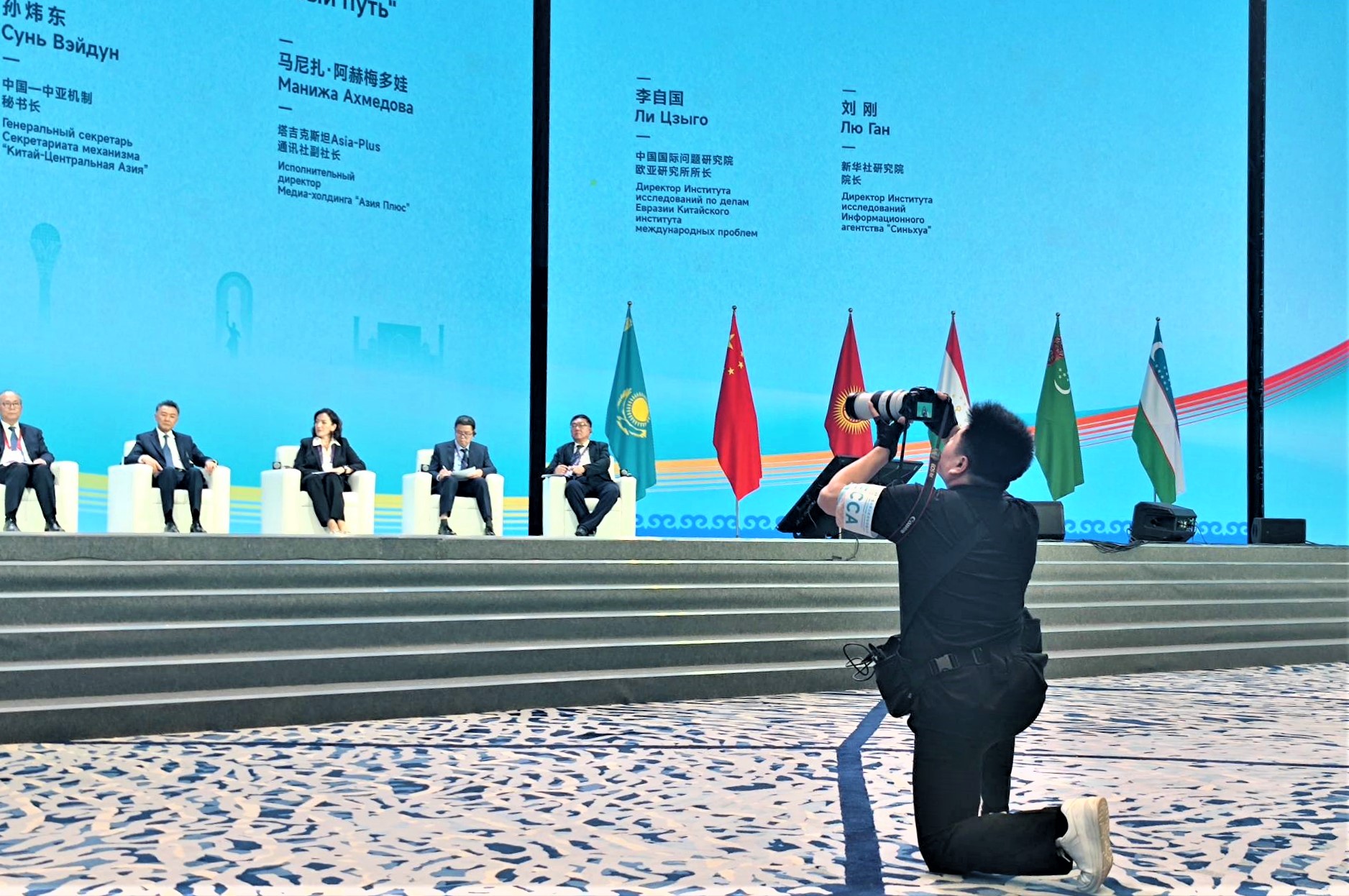
Turkmenistan supports the idea of forming new international narratives based on respect, equality and deep historical memory of the Great Silk Road – a symbol of mutual benefit and openness. Amansaryev emphasized that the civilizations of Central Asia and China are bearers of priceless treasures of world culture. Our duty is not only to preserve, but also to rethink and pass on this heritage to new generations in modern digital formats, through joint media projects, exhibitions and documentaries.
Based on this principle, proposals were put forward to expand joint cultural initiatives directly related to the history of the Silk Road, to establish a single media archive on the cultural heritage of the entire region, which will become an invaluable resource for researchers and a wide audience, and to stimulate the production of joint media content based on the rich history, literature and philosophy of the peoples of Central Asia and China.
These steps, as Amansaryev is convinced, will become a contribution to a new chapter of civilizational dialogue, where the voice of each nation will be heard and understood.
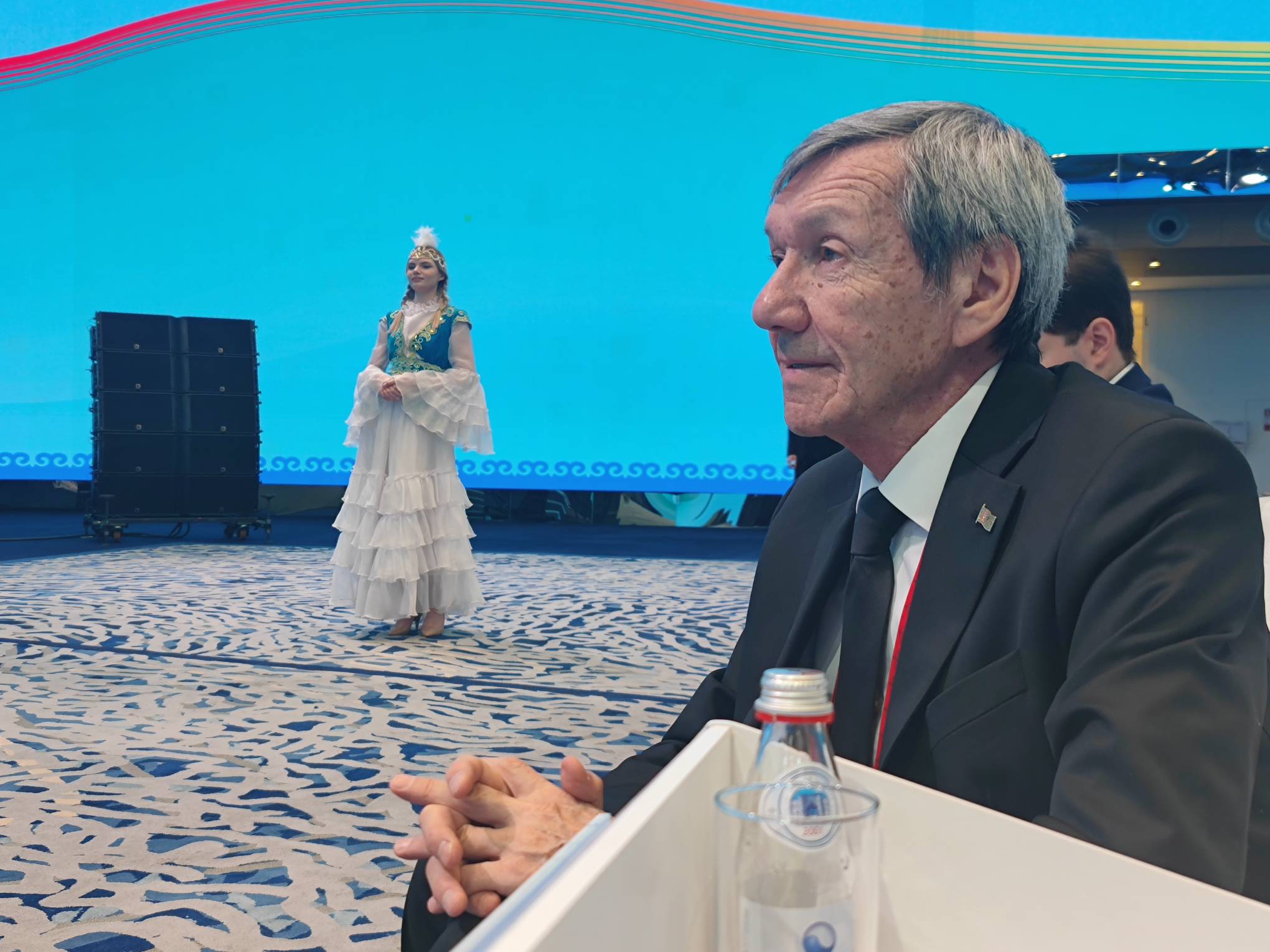
In addition to the cultural agenda, the head of MEDIA TURKMEN also touched upon the environmental topic, emphasizing the importance of "greening" energy, communications and cities. He recalled Turkmenistan's commitment to sustainable development, energy justice and joint work in the field of renewable energy. According to him, the media should actively participate in this process through education, exchange of experience and dissemination of knowledge about green practices and technologies.
In conclusion of his speech, Bekdurdy Amansaryev again turned to the symbol of the Silk Road, but this time as a perspective. He noted that modern digital channels, transport corridors and logistics networks require unprecedented information and humanitarian coordination. This is where he sees the key role of the media - to be a catalyst for mutual understanding and integration.
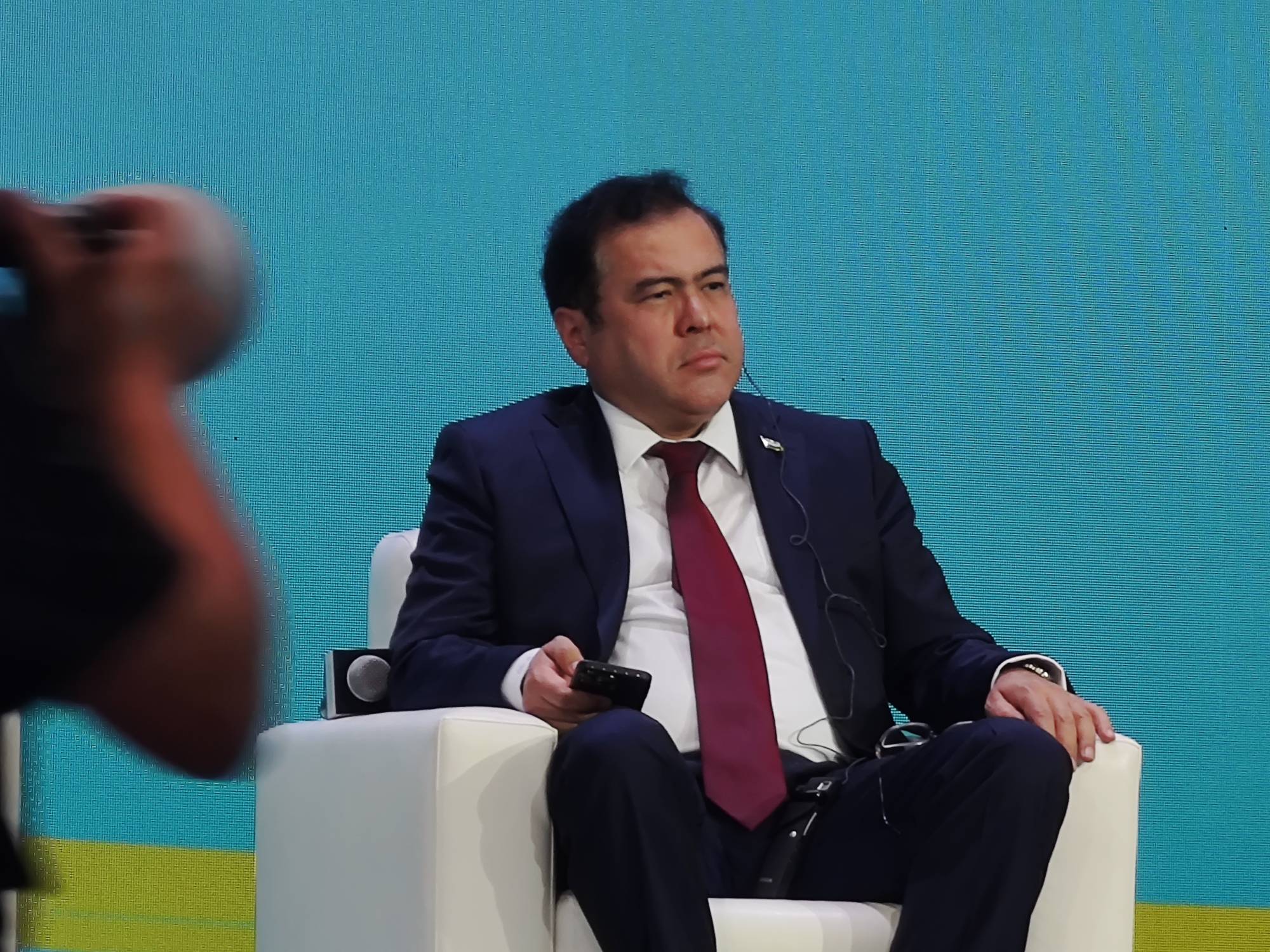
"Media do not simply reflect reality - they form a common picture of the world. That is why our common task is to build an honest, fair, creative media environment worthy of the Silk Road of the 21st century," emphasized the head of MEDIA TURKMEN, concluding his speech with the appeal: "Let our communication become a new connecting bridge - from heart to heart, from culture to culture, from idea to action!"











